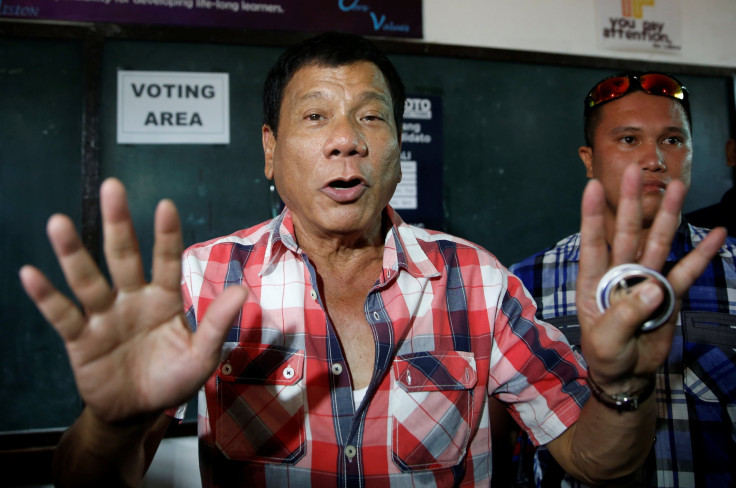Philippine Congress Proclaims Duterte Winner Of Presidential Election

Rodrigo Duterte became the 16th president of the Philippines on Monday when a joint session of Congress declared him winner of a May 9 election, succeeding Benigno Aquino who steps down next month after six years in office. The tough-talking Duterte, mayor of Davao City in the south, campaigned on the single issue of crushing crime and now faces a daunting task of fixing infrastructure, creating jobs and lifting more than a quarter of the 100 million population out of poverty.
"I hereby proclaim Rodrigo Roa Duterte and Maria Leonor Gerona Robredo as the duly elected president and vice president of the Republic of the Philippines," Senator Franklin Drilon and Congressman Feliciano Belmonte said in a joint session of Congress.
Robredo is an ally of Aquino's. She beat the son and namesake of late dictator Ferdinand Marcos to become vice president. Duterte, 71, was in Davao on Monday and was declared winner in absentia.
He won the ballots of nearly 40 percent of 44 million voters, lured by his success against crime in Davao, despite the questions his policies raised among human rights campaigners. Duterte has been criticized for allowing a spree of vigilante killings, and critics fear he could let them happen on a larger scale as president. He has denied ordering killings, but has not condemned them.
CONTINUATION IN ECONOMIC POLICY
The former prosecutor has said he will continue his predecessor's economic policies, which focused on infrastructure and fiscal efficiency, to help push growth up to 7-8 percent. Growth has been on average 6 percent a year under Aquino, but it has not translated into jobs and improvement in the lives of ordinary Filipinos.
Among several appointments Duterte has announced is Ernesto Pernia, an economics professor from the University of the Philippines, as economic planning secretary, and a former agriculture secretary, Carlos Dominguez, as finance minister. Duterte is due to announce his cabinet on Tuesday.
The president also inherits a territorial dispute with China but he has indicated his willingness to repair strained ties by inviting Chinese investment and offering to set aside sovereignty issues in exploring resources in the South China Sea. He has said he will not abandon Philippine claims.
Duterte has also said he would pursue peace with Marxist guerrillas and has even offered their leaders government roles. He has said he wanted a more even distribution of power and wealth and has called on Congress to revise a 1987 constitution to allow for a more federal system of government to accommodate Muslim rebels in the south.
But confrontation looks to be looming with the influential Roman Catholic church. Duterte has said he will defy the church and seek to impose a three-child policy and he has called Philippine bishops "sons of whores."
© Copyright Thomson Reuters 2024. All rights reserved.











